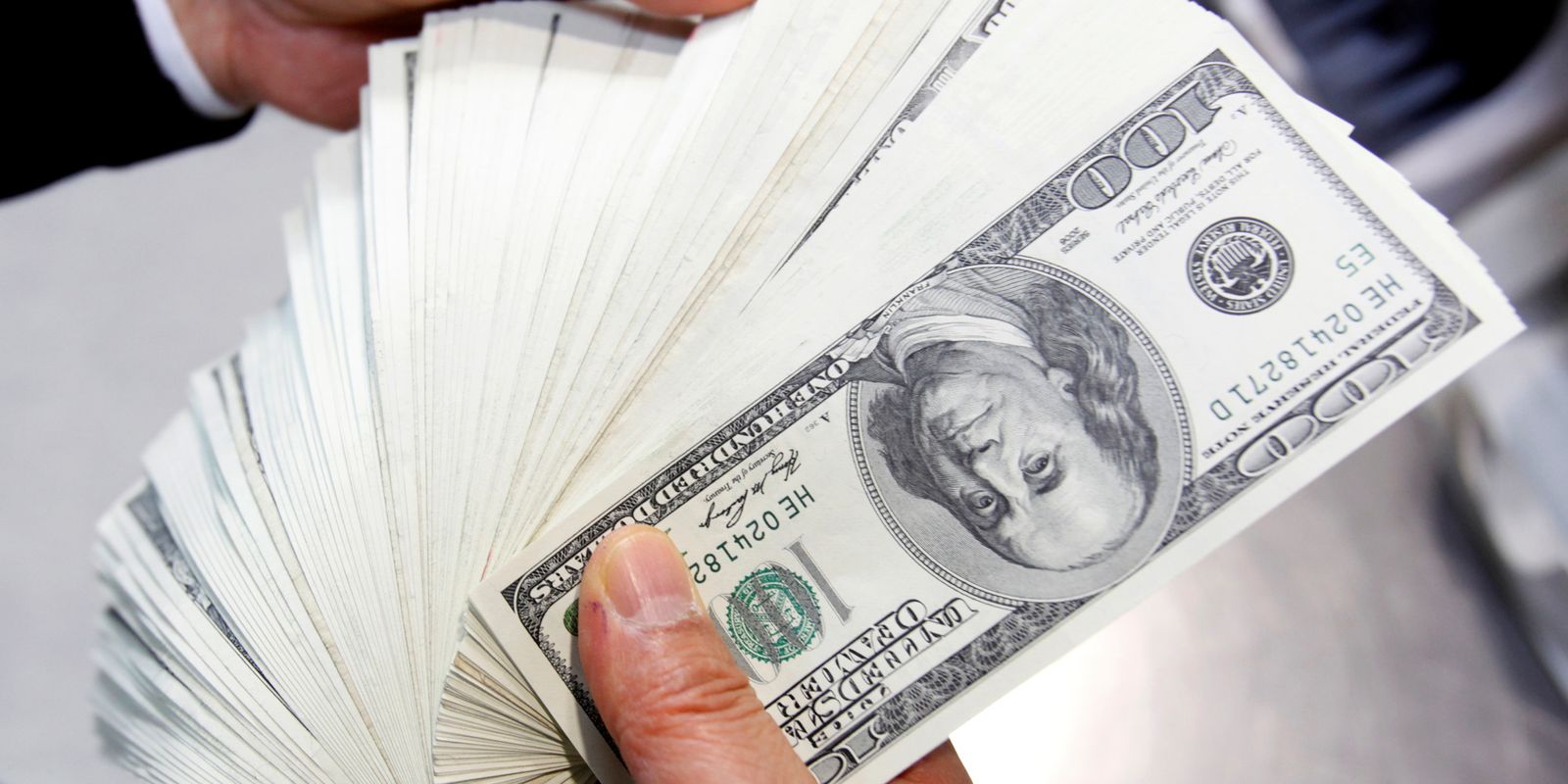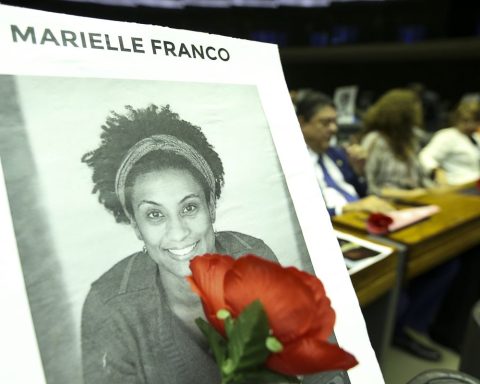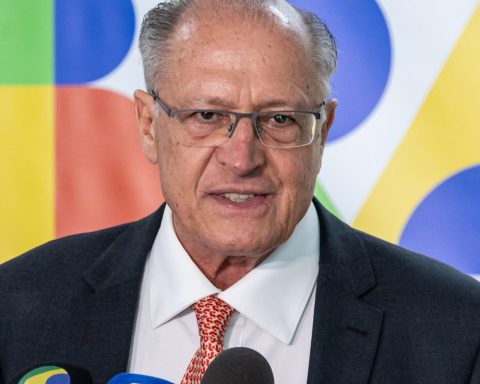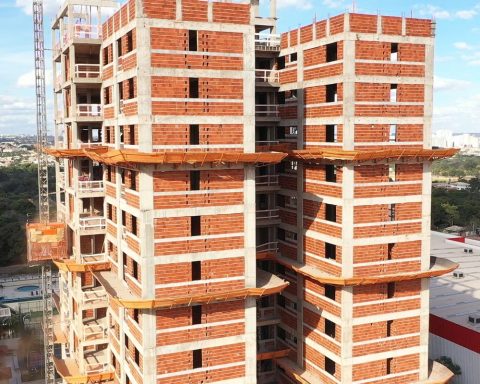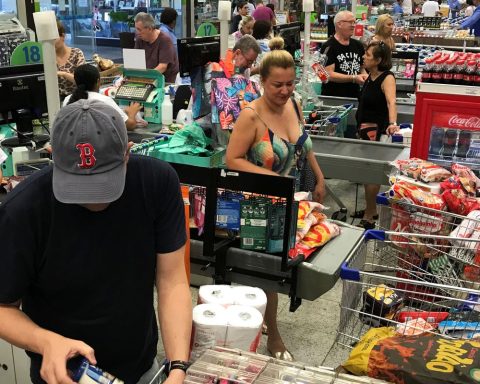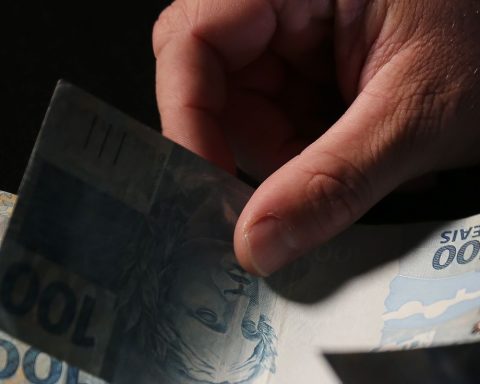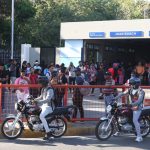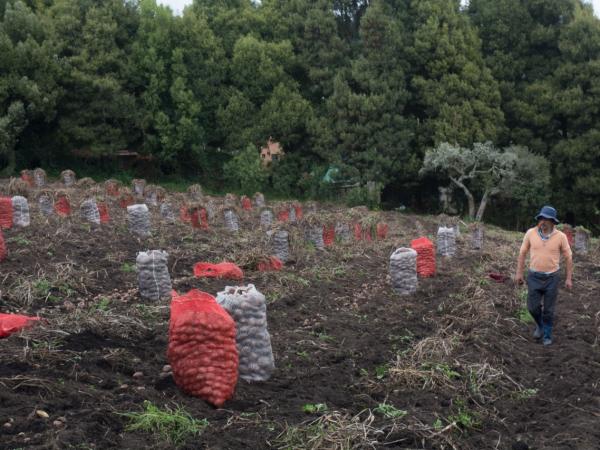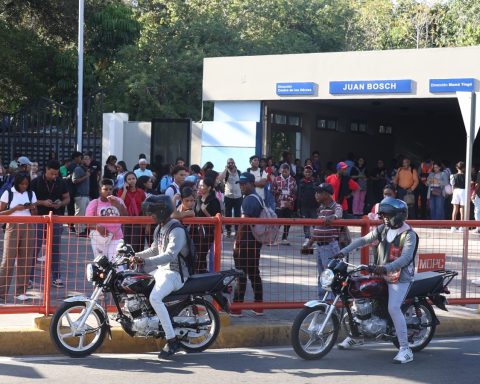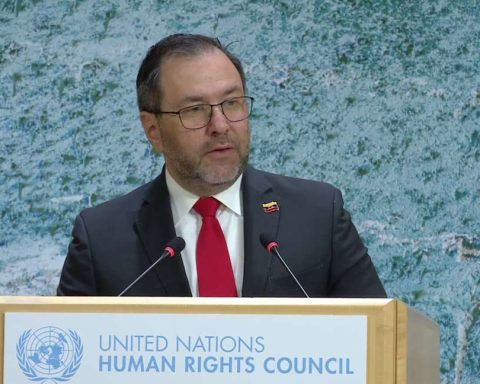On a day with no economic news in Brazil, the financial market was heavily affected by turbulence in the United States and Asia. The dollar rose sharply and closed at its second highest price of the year. The stock market fluctuated throughout the day, but closed close to stability.
The commercial dollar closed this Wednesday (24) sold at R$5.657, up R$0.071 (+1.27%). The price operated on the rise throughout the day, but gained strength during the afternoon, with pressure from the North American market. At the highest point of the day, around 4 pm, it reached R$5.66.
The US currency is at its highest value since July 2. The dollar has accumulated an increase of 1.23% in the month and 16.57% in 2024.
The stock market was also tense today. The Ibovespa index, from B3, closed at 126,512 points, down 0.13%. The Brazilian stock market only didn’t fall further because the rise in Petrobras shares, the most traded stock, held the Ibovespa down.
The oil company’s common shares (with voting rights at shareholders’ meetings) rose 1.01%. Preferred shares (with priority in dividend distribution) appreciated 0.8%, driven by the slight recovery in oil prices on the international market.
Three factors put pressure on the financial market, especially in emerging countries, this Wednesday. The first was the slowdown in the Chinese economy, a major consumer of raw materials, which has reduced the price of commodities (primary goods with international quotations) in recent days. With emerging countries exporting at lower prices, less foreign currency enters, which pushes up the dollar exchange rate.
The second factor, also coming from Asia, was expectations regarding the possibility of the Japanese Central Bank raising interest rates and reducing the volume of purchases of government bonds to contain the devaluation of the yen, the Asian country’s currency. Higher rates in advanced economies encourage the flight of resources from emerging countries, such as Brazil. The Japanese monetary authority meets next week.
Finally, during the afternoon, the rates of US Treasury bonds, considered the safest investments on the planet, rose again. This factor also causes the withdrawal of financial capital from emerging countries.
*With information from Reuters
